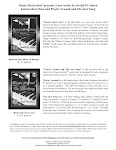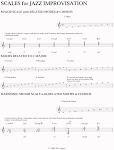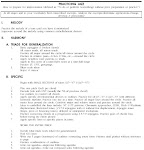I have often been asked "What do you do when a music student won't practice?" I often think that question is a cover up. It doesn't get to the root of the problem because as music educators, we don't know why they aren't practicing. They can tell us why they haven't practiced, but that may or may not be the real reason they have chosen not to play their instrument. The problem is not that they aren't practicing, it is questioning why they don't want to play their instrument. If they play their instrument every day but won't practice the assigned music then there is a problem with the music that has been assigned and the lack of interest the student has in playing those pieces or exercises.
If the student won't play their instrument at all - to practice, perfect, perform, or just to play it - maybe they're not as interested in the instrument as their parents are or want them to be. The real question that must be asked is "What is preventing my music student from practicing?"
Is the music not exciting enough? Is the theory being taught in such a way that the student doesn't enjoy the instrument? Is the student feeling overwhelmed by what the teacher is teaching? Is the student not being challenged? Is the student's progression stagnant because the teacher is not fully qualified or doesn't exactly comprehend the material as they should? Is the student not interested in the instrument at all because they would rather draw all day, build model trains, create complex mathematic equations to be solved, work-out, play sports, watch TV, play on the computer, game stations, etc.? Is the student too involved in extra-curricular activities so they feel they don't have time and quite honestly don't have time because of everything they are doing? Why do they feel practicing/playing their instrument is not as important as all of their other activities they are doing and choose to do instead of practicing/playing their instrument?
Everyone has the same amount of time allotted to them. What we choose to do with our time tells us and those around us what we feel is important to us. It shows our preferences, our likes, our interests, what we choose to see, hear, do, experience, learn, and be. By participating in certain activities and not in others, our priorities are on public display to everyone else.
When children are younger, their priorities are primarily chosen for them by their environment. What they see they parents or guardians do or neglect to do often pave the way for what they will do or not do in their own lives.
I ran into my third grade teacher a while ago and asked how he and his family were doing. We were actually in the same neighborhood growing up so I knew him and his family very well and always admired them. I then asked how his teaching was going. It was interesting to converse with him as one adult to another even though at one time we had done so when I was the child and he was the adult.
He said he had just finished a parent-teacher conference and was always surprised to meet the parents of the students. He said you could tell so much about the reason the child was they way they were after meeting the parents. Certain good and bad qualities he noticed in his students were simply a reflection of the good and bad qualities in the parents. He then related a very interesting experience with one set of parents. The student was doing poorly in school, couldn't read very well and didn't enjoy reading aloud or silently to himself. He simply didn't like reading. He didn't enjoy it and wanted to do everything except learn. He had said that he hated books and thought it was a waste of time. His parents of course were furious when they heard this. They then accused the teacher and said, 'What are you doing to help him improve his grades and finish his required reading?' The teacher then said, "What are you doing to help him with his grades?" You see, the parents actually believed it was the teacher's responsibility to teach and help the student's grades improve. They thought their child would succeed or fail because of the teacher and believed if the student succeeded or failed it must have been a result of what the teacher taught or did not teach.
A thought came into the teacher's mind and he asked the father how often he reads books. The father said, almost defiantly, that he hated books and never read them. He said he's not in school anymore and doesn't need to read. The teacher said, "That is exactly what your son is seeing. He sees that you don't care about reading and since you never do it, neither should he. He knows how unimportant learning is in your life, and as a result he has chosen to follow your example. He is doing exactly what you do."
I've told that to several parents of the music students I teach. They can't understand why their child won't practice their instrument. I simply ask them (the parent) if they can play an instrument. Many of the parents say they would love to, but they've never had the time to learn. Many have said they took lessons when they were younger but quit or gave up because they were not interested in playing instruments. I hear some relate to me how they were so involved in sports or school, work, hobbies, etc. and were too busy to practice their instruments and have regretted it ever since. All of these other activities are essential to life and without them we would be incomplete, but if we do something someone else wants us to do and don't do what we want to do, we become incomplete.
Many parents felt forced to play the piano, violin, flute, etc. by their parents and never wanted to do anything with it because they did not learn to enjoy it or appreciate it. When the parents are grown up they look at individuals who have learned to play instruments and feel pained because they know they could have and should have continued playing their instrument(s), but they quit. For whatever reason, they did not stick with it. As a result they want to make their children play an instrument and think their children will miraculously stick with it when they haven't learned to enjoy it either. Do you see a pattern here?
Many parents are doing the same thing to their children that their parents did to them. They read the statistics about how playing an instrument can actually help a child improve their grades. They see how playing an instrument can be a wonderful self-esteem builder to give their students more confidence and an improved self image. The same thing happens with sports. I tell my music students they should play an instrument and play sports. Don't be one or the other (a jock/athlete or a musician) - be both. The only down-side to sports is that eventually your body will age and won't be able to do what it used to do. With music, you can play your instrument regardless of age or frailty of body (unless your hands stop working, then you might be in trouble).
If we can teach our children to love their instruments, to enjoy the music their instrument produces, to listen to various artists - past and present - and to really connect with music because they want to and not because they feel they are being forced to, then they will appreciate music. They will practice and play music because it is music they enjoy, music that makes them feel good and everyone else who hears them play as well. Students don't practice because they have not learned to love their instrument or the music they can produce. Until they play their instrument because they want to and not because they are told to, they will never improve because they won't want to play their instrument. In reality it will never be their instrument, their music, or their talent until they want it.
Written by Jerald M. Simon
Copyright © 2008 Music Motivation®
All Rights Reserved
Monday, September 22, 2008
Subscribe to:
Post Comments (Atom)






.jpg)







+latest+and+greatest+flattened+(smaller+size)+rgb+mode.jpg)
.jpg)






































.jpg)
No comments:
Post a Comment